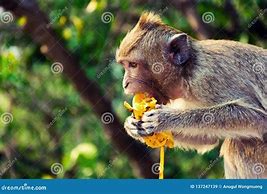Kawaii:p1ifmjgpipg=cat has permeated global culture, originating from Japan and capturing hearts worldwide with its emphasis on all things cute. Among the various manifestations of kawaii culture, the kawaii cat stands out as an iconic symbol. This article explores the enchanting world of kawaii cats, delving into their cultural significance, unique characteristics, and the global phenomenon they have become.
1. Understanding Kawaii Culture Kawaii:p1ifmjgpipg=cat
Defining Kawaii
Kawaii, a Japanese word meaning “cute” or “adorable,” encompasses a cultural aesthetic that celebrates innocence, playfulness, and charm. This concept has influenced various aspects of Japanese life, including fashion, entertainment, and everyday objects. Kawaii culture is characterized by its use of pastel colors, rounded shapes, and an overall sense of childlike wonder.Kawaii:p1ifmjgpipg=cat
The Origins of Kawaii
The roots of kawaii culture can be traced back to the 1970s in Japan, where it began as a subculture among young girls. It quickly gained popularity and spread to other demographics, eventually becoming a mainstream cultural phenomenon. The rise of characters like Hello Kitty in the 1970s played a significant role in popularizing kawaii aesthetics. Kawaii:p1ifmjgpipg=cat
2. The Kawaii Cat Phenomenon
Why Cats?
Kawaii:p1ifmjgpipg=cat Cats have long been adored in various cultures, but their association with kawaii culture has given them a unique status. Kawaii:p1ifmjgpipg=cat Their naturally expressive faces, playful behavior, and soft features make them perfect embodiments of the kawaii aesthetic. In Japan, cats are often seen as symbols of good fortune and happiness, further enhancing their appeal.Kawaii:p1ifmjgpipg=cat
Iconic Kawaii Cats
Kawaii:p1ifmjgpipg=cat Several cats have achieved iconic status within the kawaii culture. Characters like Hello Kitty, Chi from “Chi’s Sweet Home,” and the various feline mascots found in Japanese media and products exemplify the kawaii cat phenomenon. These characters are often depicted with large, expressive eyes, round faces, and innocent expressions.Kawaii:p1ifmjgpipg=cat
3. Kawaii Cats in Media and Pop Culture
Animated Series and Films
Kawaii cats have found their way into numerous animated series and films, captivating audiences with their charming antics and heartwarming stories. Shows like “Chi’s Sweet Home” and “Bananya” feature adorable feline protagonists that embody the kawaii aesthetic, appealing to both children and adults.
Merchandise and Fashion
The influence of kawaii cats extends beyond media into the realms of merchandise and fashion. From plush toys and stationery to clothing and accessories, kawaii cat-themed products are highly sought after. Brands like Sanrio have built entire franchises around their kawaii cat characters, creating a wide range of products that cater to fans’ love for all things cute.
4. The Psychological Appeal of Kawaii Cats
Eliciting Positive Emotions
The kawaii aesthetic, particularly when embodied by cats, has a profound psychological impact on individuals. Studies have shown that exposure to cute images and characters can evoke positive emotions, reduce stress, and even enhance focus and productivity. The innocent and playful nature of kawaii cats provides a sense of comfort and joy.
Nurturing Instincts
Kawaii cats often trigger nurturing instincts in people, similar to how human infants do. Their small size, round features, and perceived vulnerability elicit protective and caring responses. This nurturing instinct contributes to the deep emotional connection many people feel towards kawaii cat characters.
5. Kawaii Cats in Art and Design
Incorporating Kawaii Aesthetics
Artists and designers frequently incorporate kawaii aesthetics into their work, using kawaii cats as a central theme. This can be seen in various forms of art, including illustrations, digital art, and even street art. The use of soft colors, simple lines, and exaggerated features helps create a sense of warmth and endearment.
Global Influence
The influence of kawaii cats has extended far beyond Japan, inspiring artists and designers worldwide. The global appeal of kawaii aesthetics has led to a diverse range of creative expressions, from Western cartoons to European fashion brands adopting kawaii elements in their designs.
6. Kawaii Cats and Social Media
Viral Sensations
Social media platforms have played a crucial role in spreading kawaii cat culture. Adorable cat videos, memes, and fan art often go viral, reaching millions of viewers worldwide. Instagram, TikTok, and YouTube are popular platforms where kawaii cat content thrives, with influencers and creators dedicated to sharing the cuteness.
Building Communities
Online communities centered around kawaii cats have emerged, allowing fans to connect, share content, and celebrate their love for all things cute. These communities often engage in activities like fan art contests, merchandise swaps, and discussions about their favorite kawaii cat characters.
7. The Future of Kawaii Cats
Continued Popularity
The enduring appeal of kawaii cats suggests that they will continue to be a significant part of global culture. As new generations discover the charm of kawaii aesthetics, the demand for kawaii cat-themed media, products, and art is likely to grow.
Innovation and Evolution
The kawaii cat phenomenon is not static; it continues to evolve with changing trends and technological advancements. Augmented reality (AR) and virtual reality (VR) experiences featuring kawaii cats, interactive apps, and innovative merchandise are just a few examples of how the kawaii cat culture is adapting to the future.
Conclusion
Kawaii cats embody the essence of kawaii culture, captivating hearts with their adorable features and playful nature. From their origins in Japan to their global influence, these charming felines have become an integral part of contemporary culture. Whether through media, merchandise, or social media, the kawaii cat phenomenon continues to bring joy and comfort to people around the world, ensuring its place in the cultural landscape for years to come.






